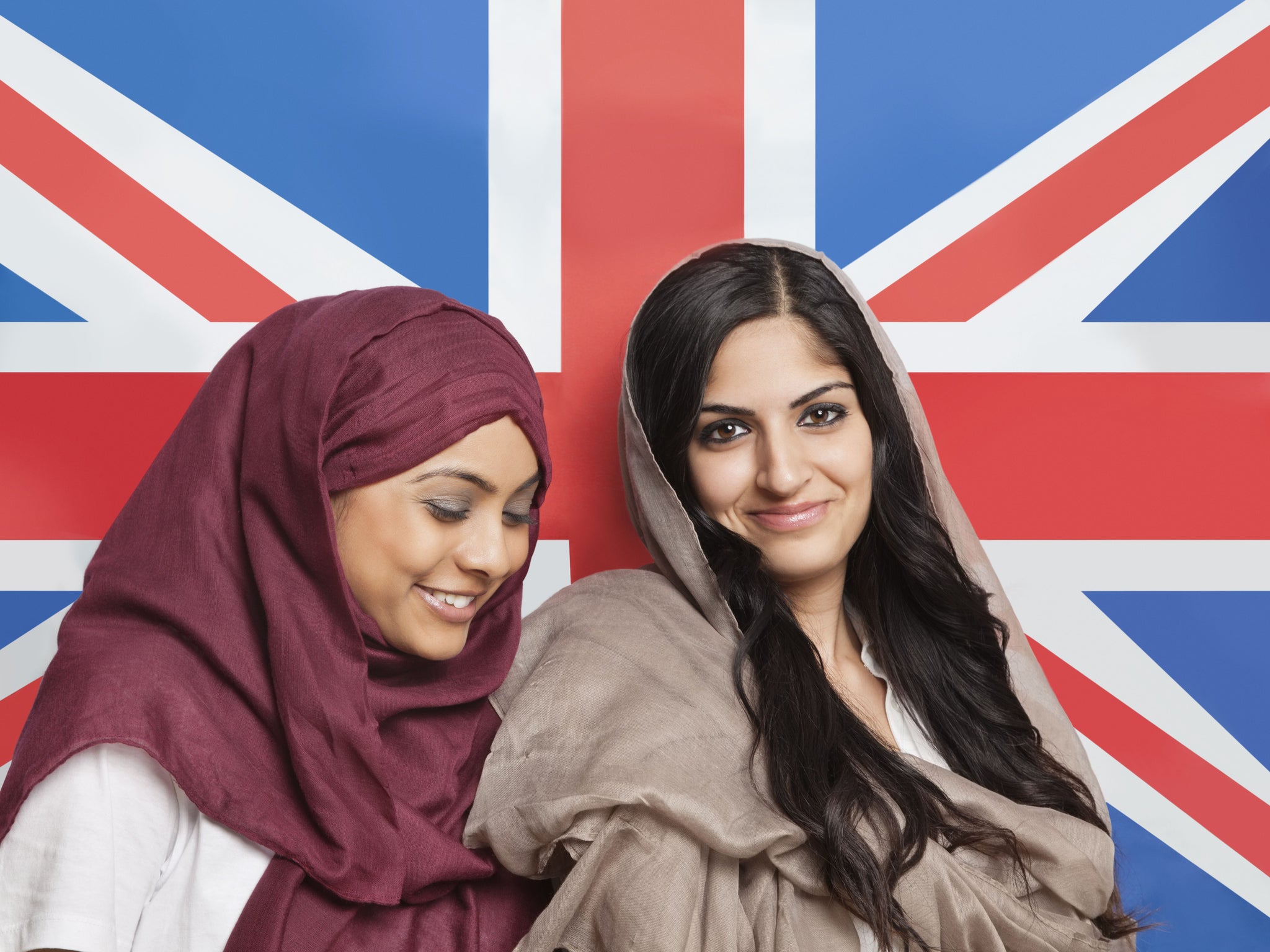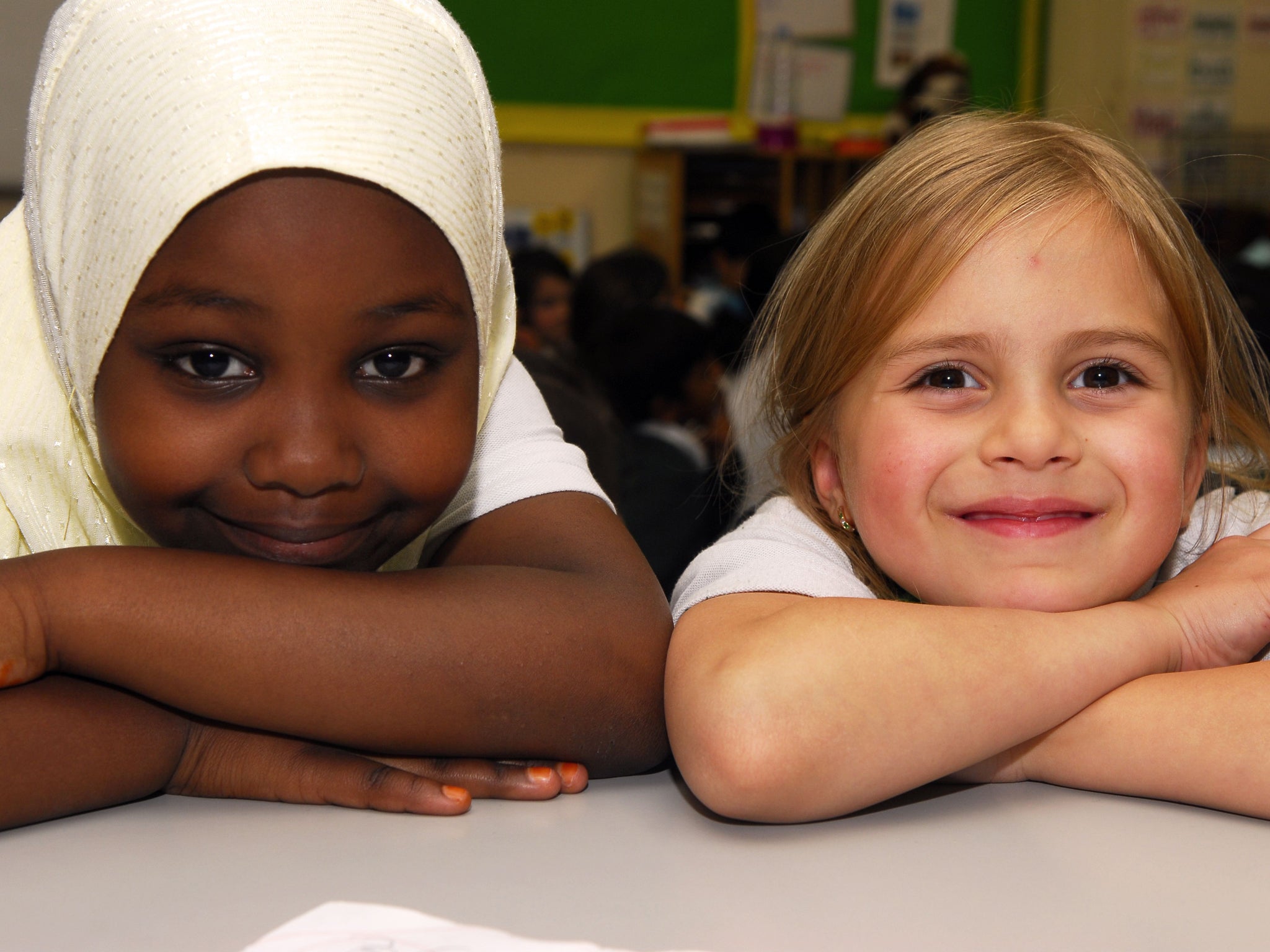Muslim population has almost doubled in England and Wales since 2001 – but nearly half live in the most deprived areas
Over 70% of Muslims state their nationality is British and only 6% struggle with English

Your support helps us to tell the story
From reproductive rights to climate change to Big Tech, The Independent is on the ground when the story is developing. Whether it's investigating the financials of Elon Musk's pro-Trump PAC or producing our latest documentary, 'The A Word', which shines a light on the American women fighting for reproductive rights, we know how important it is to parse out the facts from the messaging.
At such a critical moment in US history, we need reporters on the ground. Your donation allows us to keep sending journalists to speak to both sides of the story.
The Independent is trusted by Americans across the entire political spectrum. And unlike many other quality news outlets, we choose not to lock Americans out of our reporting and analysis with paywalls. We believe quality journalism should be available to everyone, paid for by those who can afford it.
Your support makes all the difference.The Muslim population in the UK has nearly doubled across England and Wales since 2001 to 2.71 million, but almost half live in the most deprived local authorities.
Analysis of the 2011 census by the Muslim Council of Britain shows a “frank snapshot” of the state of British Muslim life, Dr Sundas Ali, an analyst for the report, said.
In 2001, 1.55 million Muslims lived in England and Wales, which grew to 2.71 million in 2011, with a further 77,000 Muslims living in Scotland and 3,800 in Ireland.
Though the 2011 data showed that only one in 20 of the UK’s overall population is Muslim, 46 per cent of the Muslim population lives in the 10 per cent most deprived local authority districts in England.
Despite more than half of the UK’s Muslim population having been born abroad, 73 per cent state that their only national identity is British, and only six per cent of the whole British Muslim population were found to be struggling with speaking English.
There is a higher than national average of young Muslim people in England and Wales, with 33 per cent under the age of 15, while Muslim children represented one in 12 of all school age children in 2011.

Nearly a quarter of the Muslim population over that age of 16 have degree level qualifications or higher, and the total of Muslims with no qualifications dropped from 39 per cent to 26 per cent over the 10 year period.
While Muslim communities are better educated than a decade ago, there is a higher rate of unemployment and economic inactivity in comparison to the overall population, in part due to the fact that greater proportions of Muslim women looking after the home or the family.
A total of 18 per cent of the female Muslim population between the ages of 16 and 74 are looking after the home or family, which is three times as many as the whole population.
However, 29 per cent of Muslim women aged between 16 and 24 are in employment, compared with 50 per cent of the whole population.
Omar Khan, from the race equality think tank the Runnymede foundation, told the BBC Asian Network that the report made it clear Muslims do not have a problem with “British values” or identifying with Britain, and that is "nails some significant myths" about Muslims.
He outlined the myths as "the number of Muslims [in the UK], which is often exaggerated; how proud Muslims are to be British; how well they fit in; and the narrative around British values".
He said the report shows Muslims are proud to call themselves British and that they don't have allegiances to other countries in any other major way, or any confusion about where their identity lies.
Join our commenting forum
Join thought-provoking conversations, follow other Independent readers and see their replies
Comments